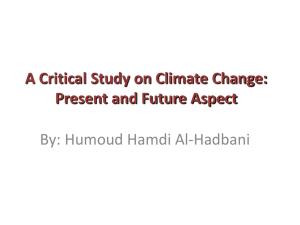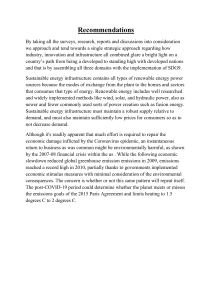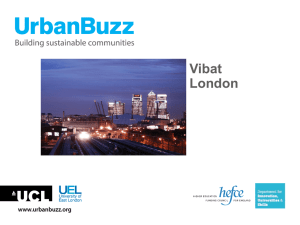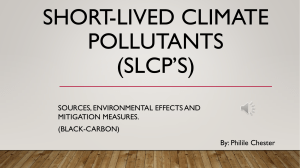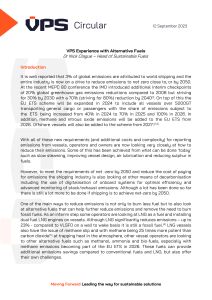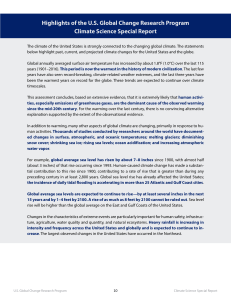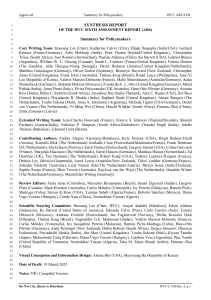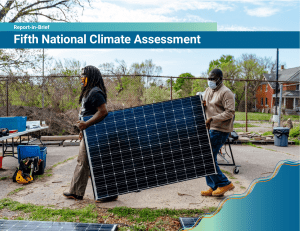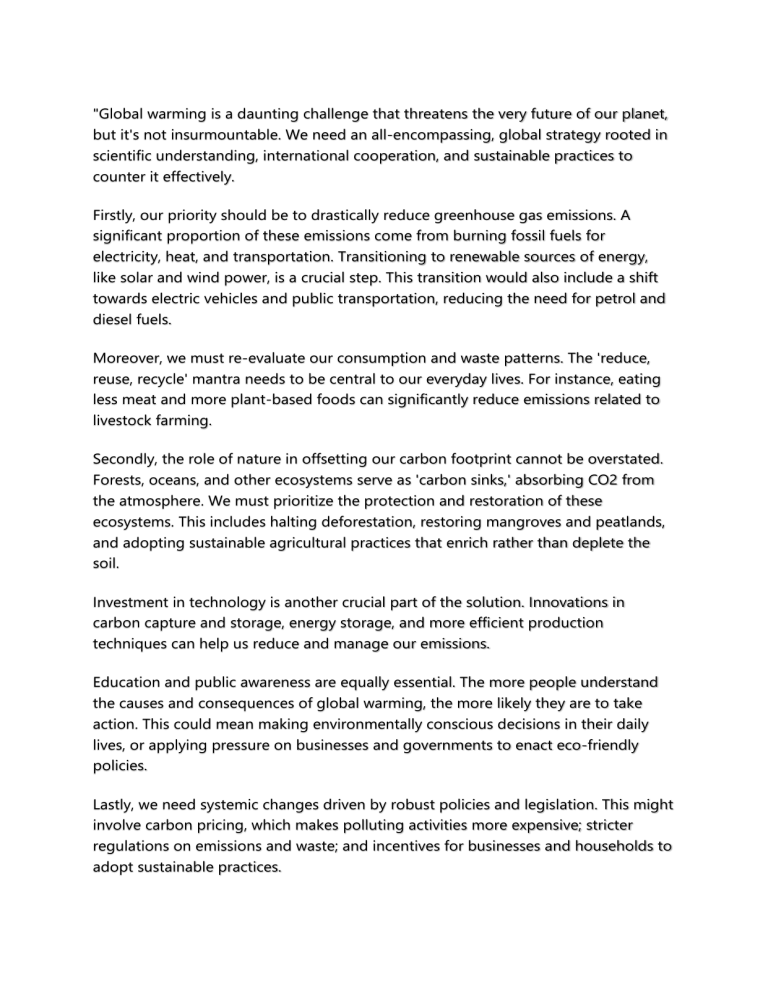
"Global warming is a daunting challenge that threatens the very future of our planet, but it's not insurmountable. We need an all-encompassing, global strategy rooted in scientific understanding, international cooperation, and sustainable practices to counter it effectively. Firstly, our priority should be to drastically reduce greenhouse gas emissions. A significant proportion of these emissions come from burning fossil fuels for electricity, heat, and transportation. Transitioning to renewable sources of energy, like solar and wind power, is a crucial step. This transition would also include a shift towards electric vehicles and public transportation, reducing the need for petrol and diesel fuels. Moreover, we must re-evaluate our consumption and waste patterns. The 'reduce, reuse, recycle' mantra needs to be central to our everyday lives. For instance, eating less meat and more plant-based foods can significantly reduce emissions related to livestock farming. Secondly, the role of nature in offsetting our carbon footprint cannot be overstated. Forests, oceans, and other ecosystems serve as 'carbon sinks,' absorbing CO2 from the atmosphere. We must prioritize the protection and restoration of these ecosystems. This includes halting deforestation, restoring mangroves and peatlands, and adopting sustainable agricultural practices that enrich rather than deplete the soil. Investment in technology is another crucial part of the solution. Innovations in carbon capture and storage, energy storage, and more efficient production techniques can help us reduce and manage our emissions. Education and public awareness are equally essential. The more people understand the causes and consequences of global warming, the more likely they are to take action. This could mean making environmentally conscious decisions in their daily lives, or applying pressure on businesses and governments to enact eco-friendly policies. Lastly, we need systemic changes driven by robust policies and legislation. This might involve carbon pricing, which makes polluting activities more expensive; stricter regulations on emissions and waste; and incentives for businesses and households to adopt sustainable practices. Addressing global warming isn't just about preserving the environment. It's also about creating a world that's healthier, more equitable, and more sustainable for us and future generations. We all have a role to play in making this happen."
